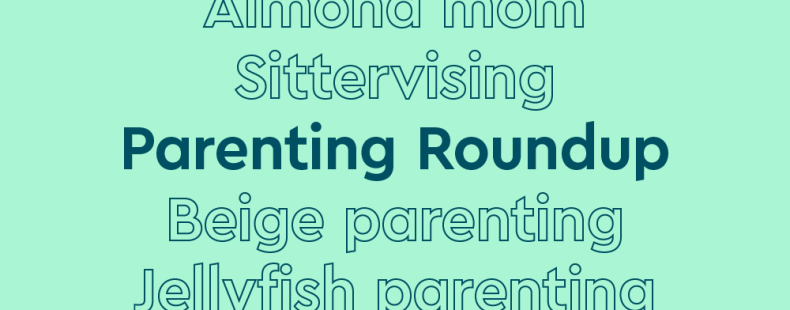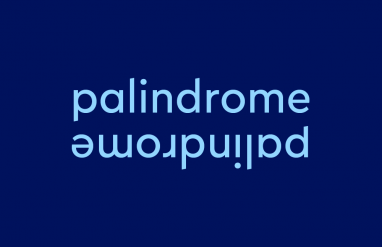Every day, it seems, there’s a new parenting buzzword dominating the headlines. One of the first big, viral terms was helicopter parent, used throughout the ’90s and 2000s to describe (and poke a bit of fun at) those parents who seem to hover over their kids and try to protect them from every little thing.
These parenting buzzwords are many things all at once. They’re lighthearted jokes, timestamps that keep a pulse on parenting trends as they change over time, and a sort of shorthand that captures how different kinds of parents are viewed within society and culture. At their best, they’re a funny way to describe the different personas, habits, and idiosyncrasies of parents. But they can also clue us into parenting culture—the good, bad, and the ugly.
Who knew simple hashtags and silly words could mean so much? Here are 11 new and trending parenting buzzwords to know (and reflect on) in 2023.
11 popular parenting buzzwords from TikTok and beyond
1. Almond mom
The term almond mom was inspired by a 2013 episode of The Real Housewives of Beverly Hills, after model Gigi Hadid’s mother instructed her to “have a couple of almonds and chew them really well” when she wasn’t feeling well. The clip went viral, prompting discussion about moms and diet culture. Almond mom became synonymous with moms who give problematic dieting advice to their kids, like how to restrict food, cut calories, or follow the latest fad diet. Actress Gwyneth Paltrow and her often-publicized restrictive diets are often cited as an example.
Why are parenting buzzwords so mom-centric?
Even though almond mom is a parenting term, notice how it really only describes moms. That’s true of a lot of parenting buzzwords. They poke fun at the overprotective moms, the relaxed moms, and the diet-obsessed moms, among others. In some ways, they’re indicative of the concerning truth that our society still sees parenting as mostly “women’s work.” Moms are still expected to take on the majority of caregiving, and we spend a lot of time coming up with different terms to dissect and judge exactly how they do that.
2. Crunchy mom
In this case, crunchy is not describing a texture. It’s a slang term, short for crunchy-granola, that means “defining oneself by ecological awareness, liberal political views, and support or use of natural products and health foods.” Crunchy moms might be more likely to have unmedicated births, to use organic products, and to do other things associated with a more “hippie” lifestyle. Crunchy has been used in this way since the 1980s, but the term crunchy mom gained its popularity during the 2010s and 2020s, thanks to its widespread use online.
3. Silky mom
If you aren’t crunchy, you might be silky. And yes, we’re still talking about human mothers here, not different rug textures. Silky moms are the opposite of crunchy moms. They embrace modern conveniences to help ease mom burnout. This means taking advantage of disposable diapers, fast food, and screen time. It’s not clear exactly when the term silky mom originated, but like a lot of these “mom words,” TikTok videos and creators are what helped the term go mainstream.
4. Scrunchy mom
For those who fall somewhere between crunchy mom and silky mom, there is another unique name: scrunchy mom. This term, born on TikTok in the 2020s, describes moms who use a blend of natural parenting methods and modern parenting conveniences. Maybe you have a mix of wooden and plastic toys and you serve a balance of homemade and store-bought foods. A scrunchy mom by any other name might just be called a regular mom doing her best.
5. Sittervising
There’s a lot of pressure on parents to constantly engage and entertain their kids, but in 2022, a different form of parental supervision started trending: sittervising. Sittervising is exactly what it sounds like. It’s sitting down while supervising kids, being more hands-off, and giving them more independence. It was coined by Susan Allison, founder of the Busy Toddler Instagram account, who bills it as a way for kids to get more autonomous playtime while adults get more of a break. Sounds good to us!
6. Snowplow parenting
Helicopter parents hover, but snowplow parents? They, well, snowplow. A 2019 New York Times article describes a snowplow parent as one who plows through obstacles for their kids, often not giving them a chance to learn independence, how to deal with failure, or problem-solving skills. This can mean anything from micromanaging playtime to more extreme examples, like the 2019 scandal in which several famous parents bribed college admissions officials to get their kids into top-tier schools. Either way, it’s a method experts say to steer clear of.
7. Sharenting
In the age of social media, parents don’t just parent anymore. They sharent. Sharenting is a combination of sharing and parenting that means sharing images and info about your kids, family, and parenting life on social media. The term has been around since at least the 2010s, with much ink spilled debating whether or not the practice is safe and healthy for children. Some families don’t post about their kids at all online, while others have entire accounts dedicated to their children. There’s a huge spectrum when it comes to sharing online, and it continues to change along with how we use the internet and social media.
8. Gentle parenting
Gentle parenting, sometimes called positive parenting, is a parenting style that relies on parents showing empathy, having respect for kids as people, and being understanding. The term gentle parenting was coined by British author Sarah Ockwell Smith in the 2010s, and it has exploded on TikTok in the past few years. Videos on the topic have more than 2 billion views. Gentle parenting is a hotly debated subject, with some praising the practice for fostering emotionally healthy parent-child relationships, while others think it is too permissive. It’s a mainstay in Millennial parenting discussions.
9. Beige parenting
In 2022, TikTok user Hayley DeRoche noticed a trend: parents were making posts showing off beige baby clothes, muted nurseries, and plain wooden toys. She started poking fun at the trend, dubbing the aesthetic “sad beige babies.” Beige parenting is a shorthand for this. It’s a parenting aesthetic focusing on neutral colors, natural materials, and a marked absence of the usual bright and colorful things we associate with small children. It may be an attempt to stay away from more gendered colors, like pink and blue, but some aren’t fans of the minimalist vibes.
10. Commando parenting
Psychology Today describes commando parenting as “my way or the highway.” Most people are familiar with the slang usage of commando, but this has nothing to do with that. Commando can refer to specialized military units, and in this parenting style, those authoritarian roots are definitely present. Commando parenting includes hard punishments, strict rules, and rigid routines. It was popularized by television host Dr. Phil, but some experts warn it can have harmful effects on kids.
11. Jellyfish parenting
Laidback parenting approaches have existed for decades, but in the 2020s, they’re sometimes referred to as jellyfish parenting. At its core, jellyfish parenting means listening to kids, offering flexibility, and being willing to follow what kids want, rather than always being the one making the decisions. It’s associated with jellyfish because these marine creatures are soft and gelatinous. Jellyfish is even used as slang for “a person without strong resolve.” It’s not clear when the term originated, but it’s gained popularity as a response to the overscheduling and demands of modern parenthood.
Think intelligence runs in the family? Take our quiz!
If you’re convinced you’re smarter than everyone and their mother when it comes to today’s parenting styles, take our quiz and find out!














